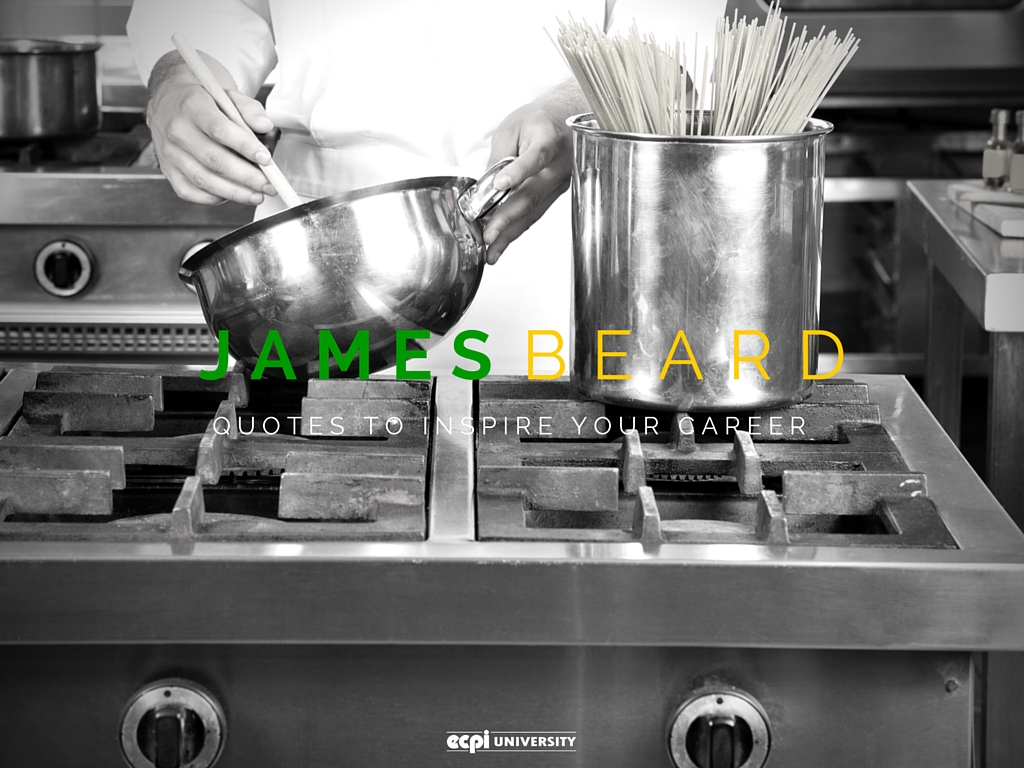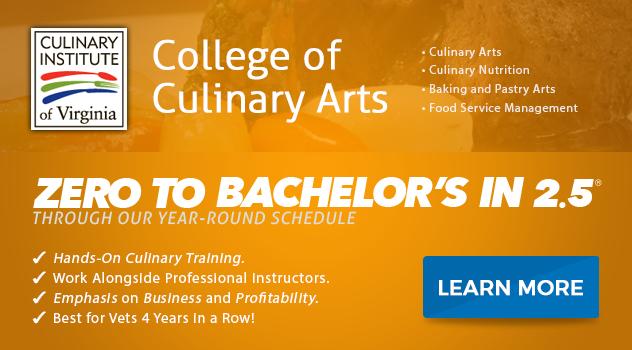
6 James Beard Quotes Sure to Inspire Your Culinary Arts Career
Have friends discouraged you from culinary arts education? Are they afraid that you will end up "just a cook"? Don't let their skepticism scare you away from a rewarding career move.
A well-known chef named James Beard passed away in 1985. He had written many cookbooks, hosted television shows, and opened a cooking school. Homemakers and food service professionals still find his quotes to be inspirational. Here are a few that are particularly applicable to culinary arts education.
"Food is our common ground, a universal experience."
There are over seven billion people living today. Sometimes, religious and cultural differences can make peaceful interaction seem impossible. Despite that, the love of good food is universal. This makes food service positions ideal for helping bridge cultural and ethnic gaps.
Organizations, such as universities, large corporations and political agencies, often have a diverse population. Food service personnel in these environments need to be comfortable meeting a wide variety of dietary needs.
"There is absolutely no substitute for the best. Good food cannot be made of inferior ingredients masked with high flavor. It is true thrift to use the best ingredients available and to waste nothing."
Today, processed food makes up the bulk of what most Americans eat. Heavy reliance on packaged food leads people to believe that they are incapable of cooking. Even worse, today’s children have little knowledge of how homemade and packaged foods are different.
As a trained food service professional, your education can enable you to help your community in many ways. When you work in a commercial setting, you model ways that food can be prepared and motivate guests to try making similar dishes at home. Another way to use a culinary degree is to teach families how to cook affordable, nutritious meals at home.
“I was taken to the exposition two or three times. The thing that remained in my mind above all others—I think it marked my life—was watching Triscuits and shredded wheat biscuits being made. Isn't that crazy? At two years old that memory was made.”
It’s easy to disregard a single experience over the course of a lifetime. When you read things like this, it’s a reminder that every moment has the potential to become a pivotal event. What would have happened if James Beard had not attended the exposition? What will happen if you decide to work as a chef? How many lives do you have the potential to touch?
"The secret of good cooking is, first, having a love of it. ... If you're convinced that cooking is drudgery, you're never going to be good at it, and you might as well warm up something frozen."
Can you remember when you were a child and somebody told you that the secret ingredient in your food was love? It may not be quite as literal as Beard's statement, but there is some truth to it.
Cooks who are passionate about their art will always have an advantage. Flour can be more or less dry, fruit at a different stage of ripeness and meat can be leaner or fattier than usual. Mindful cooking helps cooks to notice the endless variations that they encounter every day. Perhaps unenthusiastic cooks lack the motivation to try new methods and recipes. Or maybe chefs who don’t enjoy cooking just don’t pay attention to their work.
“Good bread is the most fundamentally satisfying of all foods; and good bread with fresh butter, the greatest of feasts.”
Bread is a perfect example of food that is within anybody's reach. Baking requires little specialized equipment. Most people can afford plain flour and learn the simple methods required to bake bread. Unlike many gourmet items, this food is welcome by people from any socioeconomic group. Every culture has bread of some kind. You could eat a new kind of bread every day for a year, if you chose to.
We have the ubiquitous American white bread. Indian families eat deep fried poori and Chinese have steamed buns called bao. In Ethiopia, meals come with fermented teff crepes called injera. What better way is there to explore cultures from around the world than by eating what the people eat?
“I don't like gourmet cooking or 'this' cooking or 'that' cooking. I like good cooking.”
oh yea i got accepted into ECPI University & i'm gonna graduate from there w/ my associates in culinary arts in 2016 which is cool
— bridget (@slumbersome) May 29, 2015
Inspired? Begin Your Culinary Career at ECPI University!
If you’re interested in good cooking, contact ECPI University for more information. Our Associate of Applied Science in Culinary Arts can be completed in as few as 1.5 years through our year-round schedule! Our graduates have found work in many settings including Corporate Dining Services, Restaurants, and many more! Contact us today—it could be the Best Decision You Ever Make!
DISCLAIMER – ECPI University makes no claim, warranty, or guarantee as to actual employability or earning potential to current, past or future students or graduates of any educational program we offer. The ECPI University website is published for informational purposes only. Every effort is made to ensure the accuracy of information contained on the ECPI.edu domain; however, no warranty of accuracy is made. No contractual rights, either expressed or implied, are created by its content.
Gainful Employment Information – Culinary Arts - Associate’s
For more information about ECPI University or any of our programs click here: http://www.ecpi.edu/ or http://ow.ly/Ca1ya.


